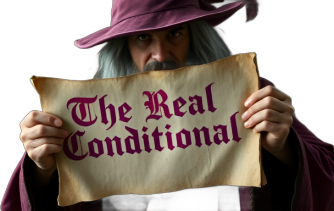
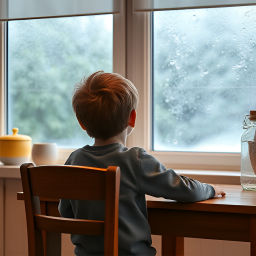 One day, Lenny looked at the kitchen nook window and wondered why there
were drops of water on the glass because it had not rained
during the night. So, he asked his father, Joe, who was a very smart
man, to explain. "Son", the father said, "Imagine the window is like a cold
glass of water on a warm day.
If warm air inside our house touches the cold window, it cools
down. If the air cools, it can’t hold as much moisture, so little
drops of water form on the window, kind of like when you see tiny
droplets on the outside of your glass of water on a hot day. That’s
called condensation!
So, it hasn't rained, but the air inside has enough moisture in it,
and if it touches the cold glass, it turns into water droplets.
It's like the air is “breathing out” little drops of water!
One day, Lenny looked at the kitchen nook window and wondered why there
were drops of water on the glass because it had not rained
during the night. So, he asked his father, Joe, who was a very smart
man, to explain. "Son", the father said, "Imagine the window is like a cold
glass of water on a warm day.
If warm air inside our house touches the cold window, it cools
down. If the air cools, it can’t hold as much moisture, so little
drops of water form on the window, kind of like when you see tiny
droplets on the outside of your glass of water on a hot day. That’s
called condensation!
So, it hasn't rained, but the air inside has enough moisture in it,
and if it touches the cold glass, it turns into water droplets.
It's like the air is “breathing out” little drops of water!
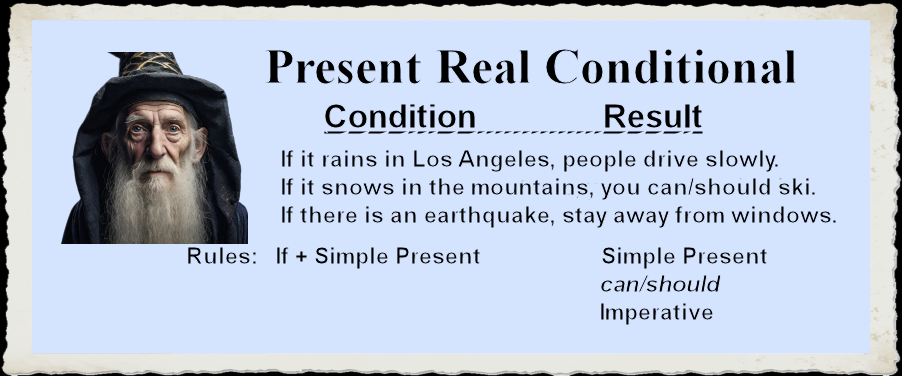
Note: We can also use the present continuous form for the condition. For example: If she is sleeping, don't wake her up.
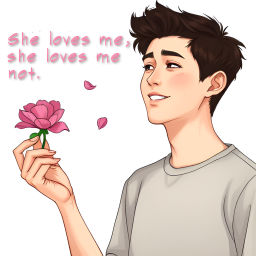
Listen carefully to the audio track.
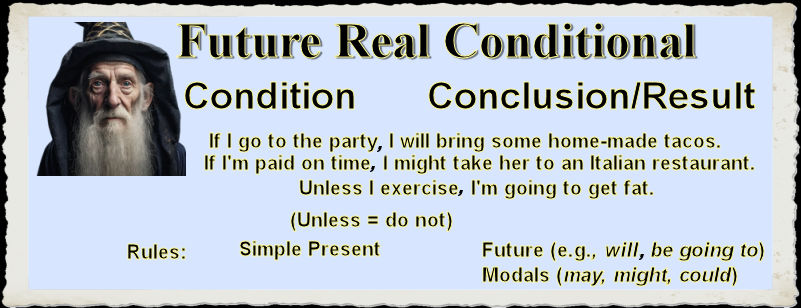
The Past Real Conditional
If + condition + , (then) result
Result + if + condition
The condition is in the past tense. The result is also in the past tense.
She always brought her little brother with her if we had a date.
If the weather was nice and the waves were good, I always went surfing in Santa Monica.
Directions: Select the appropriate word(s) to complete the following sentences.
1) If you study hard, you _________ the exam.
2) Len said,"Unless it’s a Wednesday, I ________ to work."
3) If you drive south for 120 miles, you ________ to San Diego.
4) If A=B and B=C, then A ______________C.
5) If they don’t hurry, they ________________ miss the train.
6) Plants ____________ if they don't get water.
7) As a child, if I _________ in front of an audience, I used to sing songs for them.
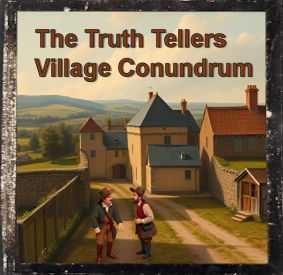 You will now be challenged to use the skills and knowledge
you have acquired.
You will now be challenged to use the skills and knowledge
you have acquired.
If you have the necessary measure of courage, play the following video to accept your challenge.
